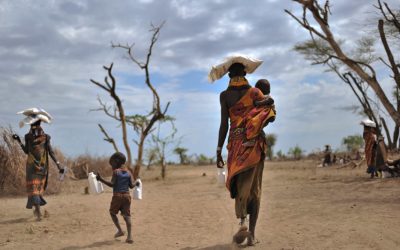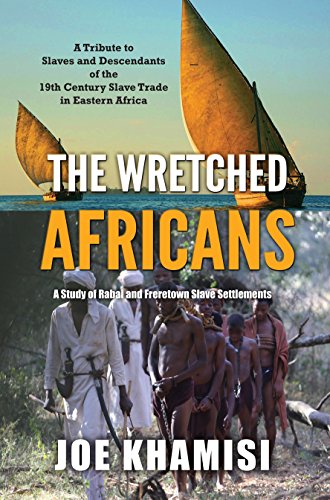By
Joe Khamisi
Less than one year from now Kenya will be exporting its first barrel of oil.
In June 2017, tanks will be snaking through 900 kilometers of road from Lokichar in the northern Turkana County to Mombasa laden with oil products for processing and onward shipment to markets overseas. That will be a landmark event for the 40 million Kenyans.
To get the oil flowing from the extreme remote area of Kenya, the government will be pumping millions of shillings to improve the road network to the nearest major town of Eldoret as plans to build a pipeline continue.
Initially, 2,000 barrels of oil per day will be exported, but as more wells become operational, production will increase to an anticipated one billion barrels a day, making Kenya one of a dozen or so oil producing nations in sub-Saharan Africa.
The successful exploration of oil in that arid area is a bright spot for the impoverished pastoralists in that region; but in a more substantial way, it will boost the economy of a country that has all along been depending on agriculture and tourism as its principal foreign exchanger earners.
President Kenyatta has been pushing the drilling company, Tullow Oil, to speed up production and release the first exports, if for anything, to enhance his chances of winning the general elections next year – a brilliant strategy indeed.
Therefore, the announcement in Nairobi last week that Kenya has joined the league of oil producers was a personal achievement for Kenyatta. The project is a signature initiative that will definitely define his legacy.
In sub-Saharan Africa, the so-called ‘black gold’ has brought wealth to the elite as well as misery to a large number of people whose interests are undermined largely by gross mismanagement and deep-seated corruption by a few.
In most cases, the citizenry yields no significant economic benefits from oil resources. This phenomenon where oil enriches a few but further impoverishes the majority is called the ‘African Curse’ or the ‘Resource Curse.’ And almost all oil producers in sub-Saharan Africa have been afflicted by that curse.
Nigeria, Equatorial Guinea, Angola, and the Democratic Republic of Congo are victims. The standard of living for a majority people in those countries remains extremely low despite the oil riches.
Photo – Lynsey Addario
Damage to the environment is also colossal. A good example is the environmental devastation along the Niger River Delta in Nigeria – where river passages are polluted, drinking water is contaminated, and neighborhoods are endangered.
One villager was quoted by the BBC as saying oil spillages there kill fish, infect skin, destroy streams and poison drinking water: “I have no livelihood left,” he said dejectedly.
Given the level of corruption in Kenya, we have to wait to see whether the Turkana people – whose livelihood is centered on livestock – will reap real benefits to substantially change their rustic lifestyles. At the same time, we will see whether adequate measures have been taken to protect the lives of the people and their herds of animals from environmental hazards. If these two things happen, it will be a unique achievement.
It is good news that the Kenya Petroleum Refineries in Mombasa which has been lying idle for years since 2013 when it exhausted its last stock of raw material will resume operations to process the Turkana oil. The refinery was built 50 years ago to process crude oil sourced mainly from the Gulf region, which is then distributed to neighboring countries.
Until now, the plant has been used only as a storage facility. The move to upgrade it and use it efficiently to refine crude from Turkana is the best move for the country.
Above it all, however, Kenya should strive to avoid the ‘African curse’ which has hindered sustainable development in many oil producing countries in Africa.
Joe Khamisi
Joe Khamisi is a former journalist, diplomat and Member of Parliament. He is also the Author of ‘Politics of Betrayal:Diary of a Kenyan Legislator‘, a political memoir about the situation in Kenya between 2001, when the ruling party of President Daniel Arap Moi, the Kenya African National Union (KANU), merged with Raila Odinga’s National Development Party.
The book also narrates cases of corruption in Parliament and in the Media and records Senator Obama’s visit to Kenya in 2006. As a friend of Barack Obama Senior, the author also remembers the times and tragedies of the American-educated economist.
Joe Khamisi’s second book, a biography, ‘Dash Before Dusk’ is also now on sale.
Joe’s latest book is ‘The Wretched Africans: A Study of Rabai and Freretown Slave Settlements‘ which has recently been published and is now available to purchase.







Excellent article. Just a quick observation - the extraction of the 'black gold' of oil is not in itself the curse for the relevant country or countries involved. The curse is the relentless pursuit of corporate profits by the oligarchic transnationals that dominate the oil industry. Oil wealth has rarely trickled down to the most impoverished segments of society, but has only aggregated in the pockets of the financial elite. The one recent exception to this trend is Venezuela, where the government actually redistributes the revenues generated by the oil industry to the poorest people. Poverty has actually been reduced in that country, even in the face of sabotage and active obstruction by the ultra-wealthy ruling elite. The environmental damage inflicted by the constant extraction of oil is another huge problem. I have not commented on that here, because it is outside of my expertise. However, perhaps it is time to read up more on that subject. Thanks